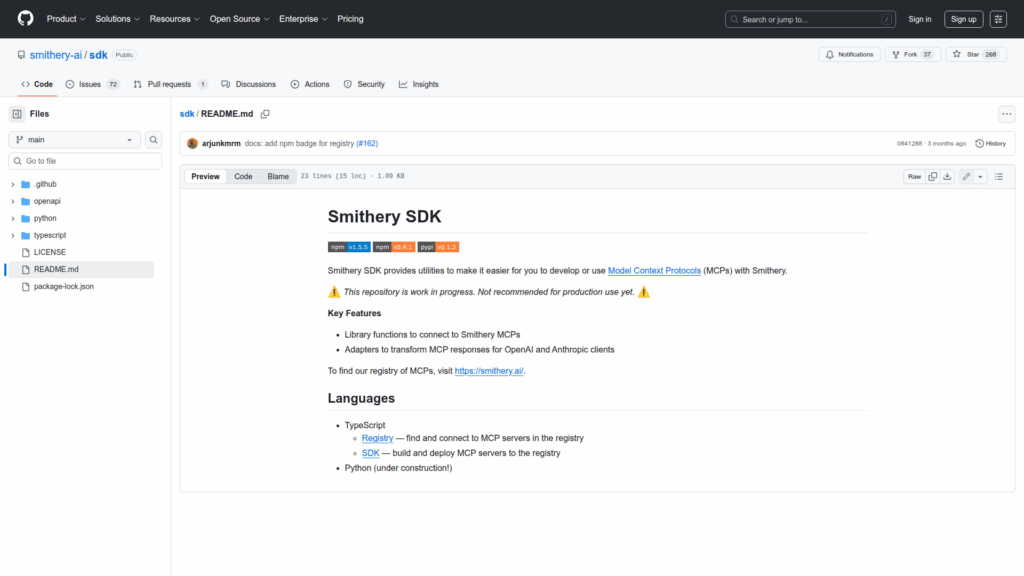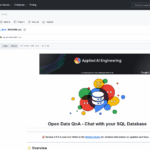Basic Information
Smithery SDK is a developer-focused library that provides utilities for building, deploying and using Model Context Protocols (MCPs) with the Smithery platform. It is intended to help developers connect to MCP servers, discover MCPs in a registry, and implement MCP servers. The repository contains TypeScript modules organized into a registry component for finding and connecting to MCP servers and an SDK component for building and deploying MCP servers. A Python implementation is noted as under construction. The README states the project is a work in progress and not recommended for production use yet. The SDK is aimed at standardizing interactions with Smithery MCPs and easing integration between MCP services and client models.
Links
Stars
260
Language
Github Repository
Categorization
App Details
Features
The README lists a small set of concrete features: library functions to connect to Smithery MCPs and adapters that transform MCP responses for OpenAI and Anthropic clients. The repo exposes TypeScript subprojects for a registry to find and connect to MCP servers and an SDK to build and deploy MCP servers. Package badges indicate distribution artifacts for npm and PyPI. The project explicitly notes ongoing development and that the Python portion is under construction. The scope described is integration helpers, protocol utilities, and response adapters rather than end-user applications.
Use Cases
This SDK helps developers by reducing boilerplate when integrating with Smithery MCPs and by providing adapters that make MCP responses compatible with popular LLM clients such as OpenAI and Anthropic. The registry component enables discovery and connection to available MCP servers, while the SDK component supports building and deploying new MCP servers into that registry. By providing language-specific tooling in TypeScript and a planned Python implementation, the repo aims to standardize MCP workflows and speed up development of services that interact with Smithery. Users should note the project is a work in progress and not yet recommended for production deployments.








